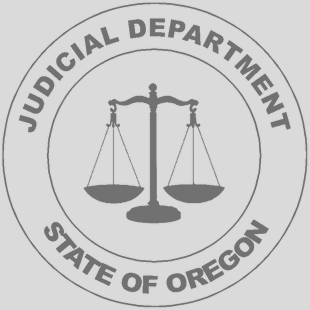Frivolous litigation is the use of legal processes with apparent disregard for the merit of one's own arguments. It includes presenting an argument with reason to know that it would certainly fail, or acting without a basic level of diligence in researching the relevant law and facts. That an argument was lost does not imply the argument was frivolous; a party may present an argument with a low chance of success, so long as it proceeds from applicable law.

The United States district courts are the trial courts of the U.S. federal judiciary. There is one district court for each federal judicial district, which each cover one U.S. state or, in some cases, a portion of a state. Each district court has at least one courthouse, and many districts have more than one. District courts' decisions are appealed to the U.S. court of appeals for the circuit in which they reside, except for certain specialized cases that are appealed to the U.S. Court of Appeals for the Federal Circuit or directly to the U.S. Supreme Court.

The federal government of the United States is the national government of the United States, a federal republic located primarily in North America, composed of 50 states, five major self-governing territories, several island possessions, and the federal district and national capital of Washington, D.C., where most of the federal government is based.
In the United States, federal judges are judges who serve on courts established under Article Three of the U.S. Constitution. They include the chief justice and associate justices of the U.S. Supreme Court, circuit judges of the U.S. Courts of Appeals, district judges of the U.S. District Courts, and judges of the U.S. Court of International Trade. These judges are often called "Article Three judges".
The court system of Canada forms the country's judiciary, formally known as "The King on the Bench", which interprets the law and is made up of many courts differing in levels of legal superiority and separated by jurisdiction. Some of the courts are federal in nature, while others are provincial or territorial.
The federal judiciary of the United States is one of the three branches of the federal government of the United States organized under the United States Constitution and laws of the federal government. The U.S. federal judiciary consists primarily of the U.S. Supreme Court, the U.S. Courts of Appeals, and the U.S. District Courts. It also includes a variety of other lesser federal tribunals.

The United States Tax Court is a federal trial court of record established by Congress under Article I of the U.S. Constitution, section 8 of which provides that the Congress has the power to "constitute Tribunals inferior to the supreme Court". The Tax Court specializes in adjudicating disputes over federal income tax, generally prior to the time at which formal tax assessments are made by the Internal Revenue Service.
Merrell Dow Pharmaceuticals Inc. v. Thompson, 478 U.S. 804 (1986), was a United States Supreme Court decision involving the original jurisdiction of the federal district courts under 28 U.S.C. § 1331.

The Oregon Judicial Department (OJD) is the judicial branch of government of the state of Oregon in the United States. The chief executive of the branch is the Chief Justice of the Oregon Supreme Court. Oregon’s judiciary consists primarily of four different courts: the Oregon Supreme Court, the Oregon Tax Court, the Oregon Court of Appeals, and the Oregon circuit courts. Additionally, the OJD includes the Council on Court Procedures, the Oregon State Bar, Commission on Judicial Fitness and Disability, and the Public Defense Services Commission. Employees of the court are the largest non-union group among state workers.

Courts of Washington, D.C. include:
This page is based on this
Wikipedia article Text is available under the
CC BY-SA 4.0 license; additional terms may apply.
Images, videos and audio are available under their respective licenses.



